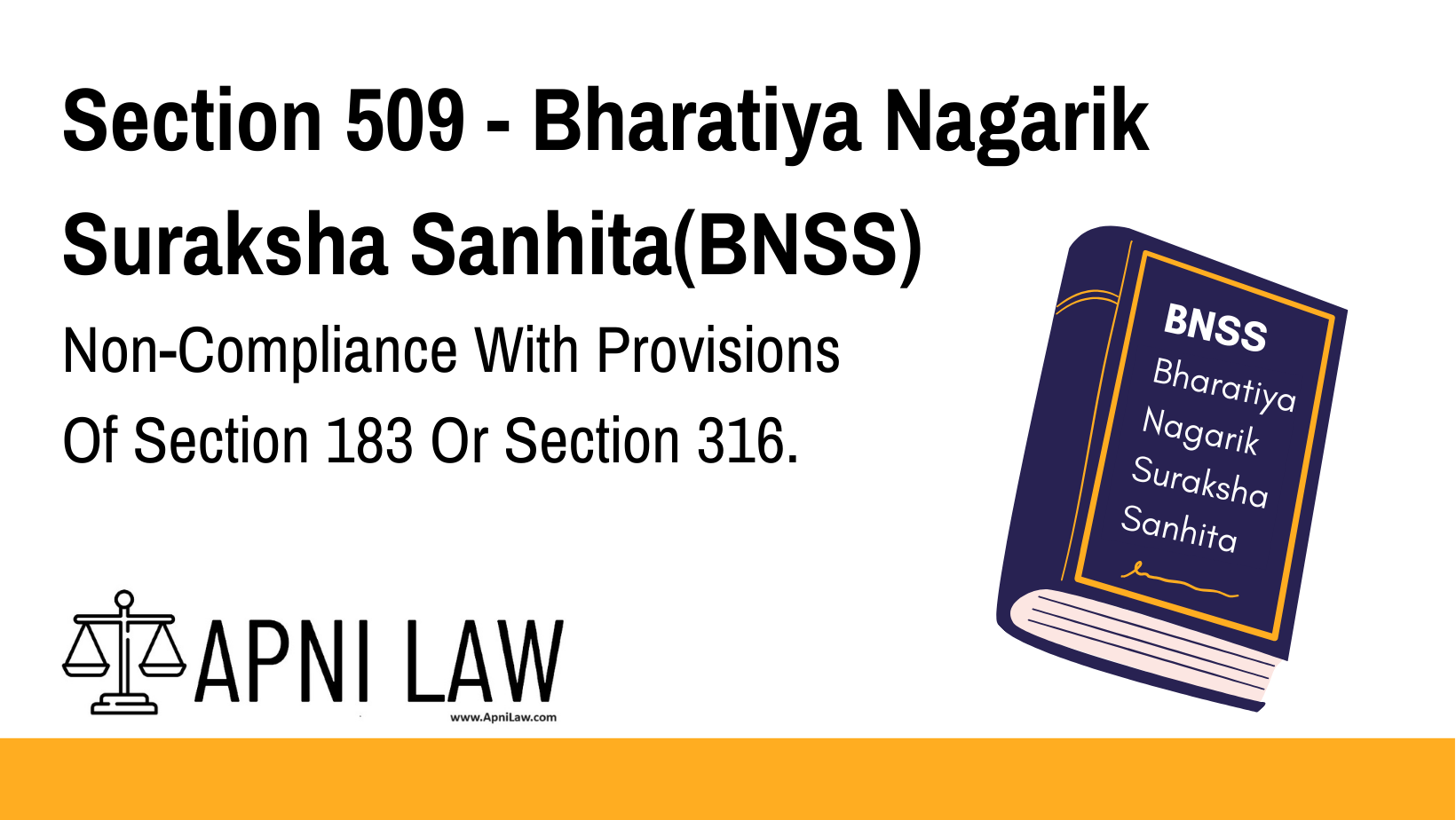Code: Section 509 BNSS
(1) If any Court before which a confession or other statement of an accused
person recorded, or purporting to be recorded under section 183 or section 316, is tendered,
or has been received, in evidence finds that any of the provisions of either of such sections
have not been complied with by the Magistrate recording the statement, it may,
notwithstanding anything contained in section 94 of the Bharatiya Sakshya Adhiniyam,
2023, take evidence in regard to such non-compliance, and may, if satisfied that such
non-compliance has not injured the accused in his defence on the merits and that he duly
made the statement recorded, admit such statement.
(2) The provisions of this section apply to Courts of appeal, reference and revision.
Explanation of Section 509 BNSS
Section 509 of the BNSS deals with situations where confessions or statements of an accused, recorded under Section 183 or Section 316, have procedural irregularities.
Key Provisions:
- Non-Compliance: If the Magistrate fails to follow the required procedure while recording the confession, the court may still admit the statement.
- Impact Assessment: The court will evaluate whether the procedural lapse prejudiced the accused’s defense.
- Application in Appeals and Revisions: The section applies not just at the trial level but also in appeals, references, and revisions.
Illustration
Example 1: Improper Recording of Confession
A confession is recorded by a Magistrate without informing the accused of his right to legal counsel under Section 183. During the trial, the confession is presented as evidence.
Outcome: The court will examine if this non-compliance harmed the accused’s defense. If not, the confession may still be admitted.
Example 2: Lack of Proper Documentation
An accused makes a statement under Section 316, but the Magistrate does not properly sign the document.
Outcome: The trial court may consider evidence regarding the irregularity. If it’s proven that the accused freely and knowingly made the statement, it will be admitted.
Common Questions and Answers on Section 509 BNSS
1. What happens if a confession is recorded improperly?
- Answer: The court will assess if the irregularity affected the fairness of the trial. If not, the confession may still be valid.
2. Does Section 509 apply to appeals?
- Answer: Yes, it applies to Courts of appeal, reference, and revision.
3. What does “injured the accused in his defense” mean?
- Answer: It means that the error harmed the accused’s ability to defend themselves, such as through unfair bias or loss of crucial evidence.
4. Can the court admit a confession even if the procedure was violated?
- Answer: Yes, if the accused was not prejudiced and the confession was made voluntarily.
5. What role does Section 94 of the Bharatiya Sakshya Adhiniyam, 2023 play here?
- Answer: Section 509 allows courts to override Section 94, which usually restricts the admissibility of evidence if procedural rules aren’t followed.
Conclusion
Section 509 BNSS ensures that technical errors in recording confessions or statements do not automatically invalidate them. The focus is on the substance of fairness, where the court assesses whether the error compromised the trial’s integrity.








